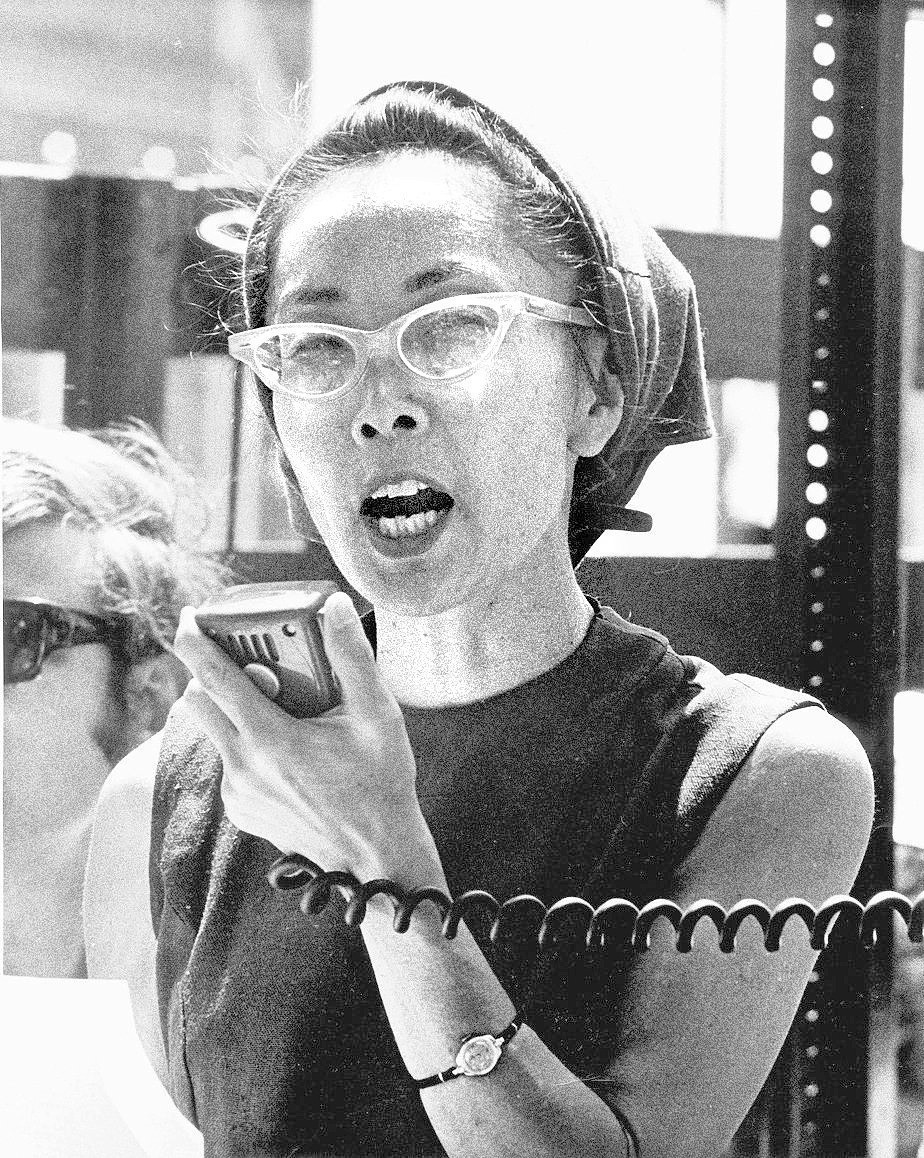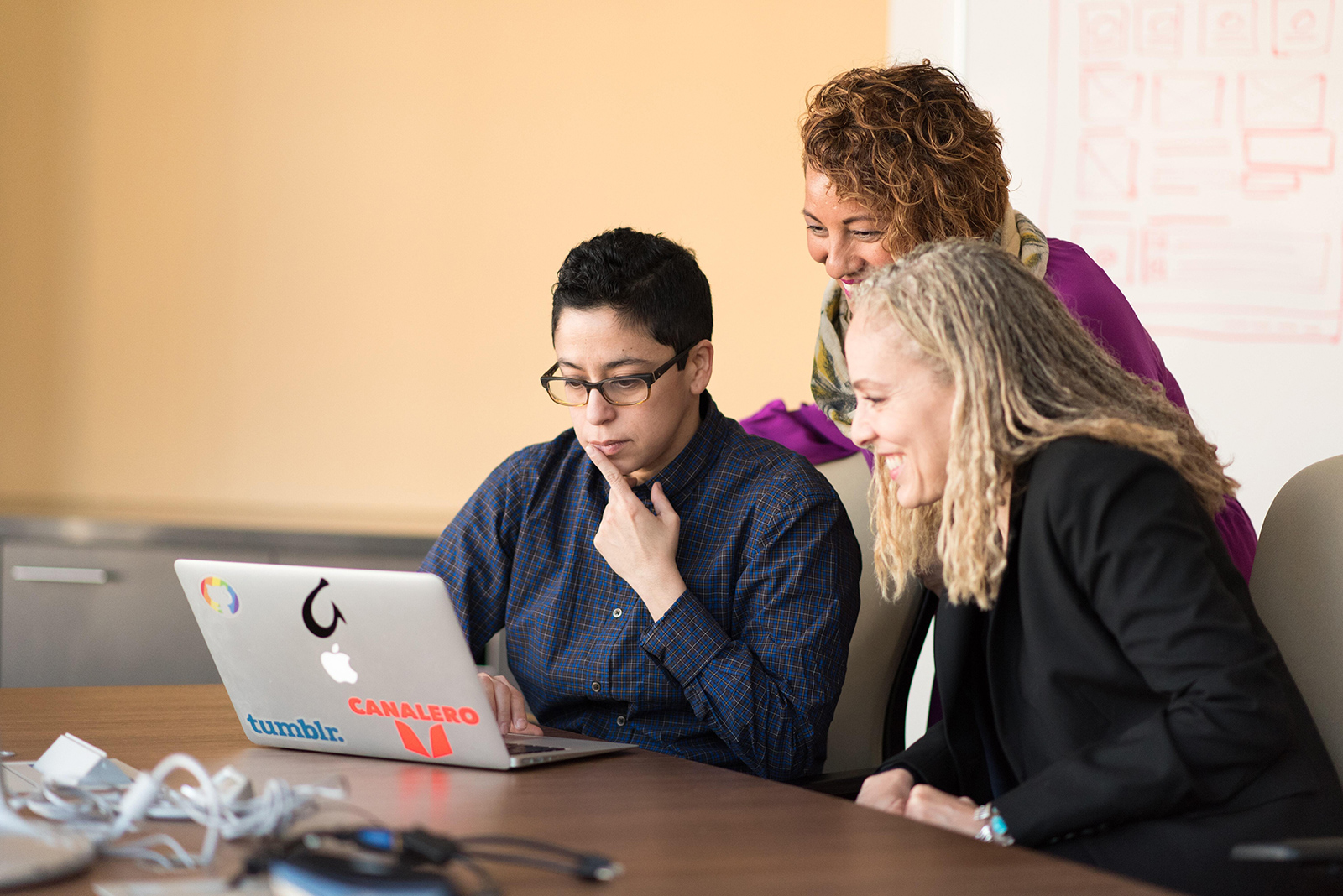#MinorityWomenLEAD | Celebrating Women Leaders on Women's Equality Day
In 1971, the U.S. Congress designated August 26 as “Women’s Equality Day”, commemorating the 1920 adoption of the 19th Amendment which prohibited states and federal government from denying any citizen’s voting rights on the basis of sex. Although this law granted women the right to vote , many women of color still faced challenges and barriers which prevented them from fully embracing this opportunity. In fact, it wasn’t until the Voting Rights Act of 1965 that women of color could legally vote in the United States.
This disparity shows the importance of acknowledging intersectionality. Women’s experiences are not limited to the challenges of gender - they are also shaped by race, class, and the discrimination that follows.
Women’s Equality Day is a celebration of women around the world. Women from all backgrounds tand up for their communities and their rights, battling against injustice and inequality, and inspiring the new generations of women who come after them.
As part of our our month-long Minority Women Lead campaign, created to uplift the voices and stories of amazing professional women of color, we are celebrating Women’s Equality in our own way by shining a spotlight on activist leaders from the past and present.
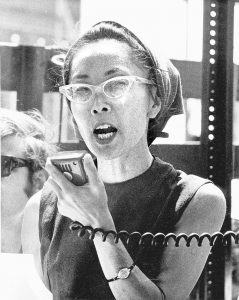 Yuri Kochiyama (1921-2014)
Yuri Kochiyama (1921-2014)
Born in San Pedro, California, Yuri Kochiyama was a Japanese-American woman who studied English, Journalism, and Art in college. Her life was forever changed in 1941 when Pearl Harbor was bombed and her family was forcibly detained in a Japanese internment camp. In 1960, she made a home with her husband and children in the city of Harlem, where they became political activists for civil rights movements and racial equality. Yuri held close friendships with other prominent activists in the community, including Malcom X, Angela Davis, Robert F. Willams, and many more. In 2005 she was nominated for a Nobel Peace Prize. On June 6, 2014, after her death, the White House honored her on their website, praising her lifelong dedication to the “pursuit of social justice, not only for the Asian American and Pacific Islander (AAPI) community, but all communities of color."
Sylvia Mendez (1936-Present)
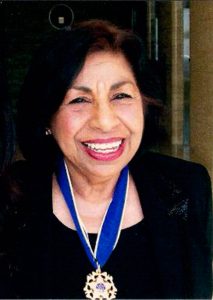 Born in Santa Ana, California, Sylvia Mendez is an American civil rights activist of Mexican-Puerto Rican heritage. She grew up in a time when segregation was active and practiced. Mendez played an instrumental role in Mendez v. Westminster (1947) which challenged the unfair practice of Mexican school segregation. Their success would later pave the path for the landmark ruling of Brown v. Board of Education (1954) which ended school segregation in United States. Sylvia became a nurse and after her retirement, with the encouragement of her mother, traveled around the world educating others and sharing the story of her family and community. She has been a spokesperson at Berkeley schools, and inspired many students, teachers, and parents. On February 15, 2011, Sylvia was awarded the Presidential Medal of Freedom, the United States' highest civilian honor. She accepted the award in honor of her deceased parents, happy for the acknowledgement of their historic contribution.
Born in Santa Ana, California, Sylvia Mendez is an American civil rights activist of Mexican-Puerto Rican heritage. She grew up in a time when segregation was active and practiced. Mendez played an instrumental role in Mendez v. Westminster (1947) which challenged the unfair practice of Mexican school segregation. Their success would later pave the path for the landmark ruling of Brown v. Board of Education (1954) which ended school segregation in United States. Sylvia became a nurse and after her retirement, with the encouragement of her mother, traveled around the world educating others and sharing the story of her family and community. She has been a spokesperson at Berkeley schools, and inspired many students, teachers, and parents. On February 15, 2011, Sylvia was awarded the Presidential Medal of Freedom, the United States' highest civilian honor. She accepted the award in honor of her deceased parents, happy for the acknowledgement of their historic contribution.
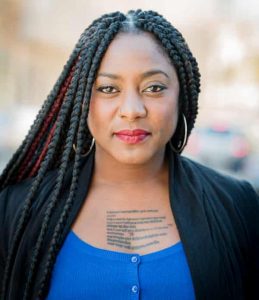 Alicia Garza (1981-Present)
Alicia Garza (1981-Present)
Born in Oakland, California, Alicia Garza is a Black American civil rights activist who helped to co-found the international Black Lives Matter movement that is still active today. She has engaged in activism all throughout school, and even helped organize the first Women of Color Conference at UCSD in 2002. She has published many editorial articles for prominent newsletters including: The Guardian, The Feminist Wire, and Rolling Stone. Alicia has given many inspiring speeches and participated in active protests. She is the co-creator of the Black Lives Matter Global Network, Special Projects Director at the National Domestic Workers Alliance, and the Principal at the Black Futures Lab. In November 2017, Alicia and the other two co-founders of Black Lives Matter (Patrisse Cullors and Opal Tometi) were awarded the Sydney Peace Prize. Her book, The Purpose of Power: How We Come Together When We Fall Apart, is set to publish in October 2020 by Penguin Random House, sharing her story as an activist and serving as a guide for future activists.
Activism is not the only way to create impactful and meaningful change.
In fact, many women of color are making a difference in their communities by becoming successful in their careers and leading change through example. When professional minority women are promoted to leadership positions, they are able to make differences in their companies and communities.
Their unique experiences allow them to boldly navigate challenges, inspire innovation, and empower the people around them. When those leaders become mentors, they are creating the new leaders of next generation, who will continue to make progress towards racial and gender equality. Take a look at some of the organizations lead by women by women and support them below:
Elizabeth Barajas-Román, panelist of our "Minority Women Leading Through Change" conversation earlier this month, founded this non-profit organization whose core mission is to democratize philanthropy through funds created by and for women in order to dismantle gender inequity across the globe. By supporting women foundations through funding, WFN is creating opportunities for achievable economic stability and a much-needed community network of support for its members. They have created many programs to help their community including: Response, Recovery, and Resilience Collaborative Fund (RRRCF), ‘Signal for Help’, and more.
Founded by Emiliana Guereca, the moderator from our "Minority Women Leading Through Change" conversation, this women-led independent organization is comprised of dedicated volunteer members determined to create positive change for women’s rights and the fight against inequality and discrimination. The organization is an easy way to learn and participate in peaceful activism, with events, resources, and a strong community for new members to connect and engage with. They are affiliated with Women’s March California and Women’s March Action.
This non-profit organization is focused on transforming and empowering Black communities on three scales: locally, statewide, and nationally. Their founder, Alicia Garza, inspired the Black Lives Matter slogan in 2013, and the organization itself is a proud supporter of the Black Lives Matter Global Network. Black Futures Lab is using their programs to change their community. The Black Census Project hopes to provide an accurate reflection of diversity of Black communities and issues they care the most about. Black to the Future takes the information gathered from the Black Census Project and uses that to develop smart and innovative policies for the communities.
This legal organization located in San Francisco is dedicated to advancing rights and opportunities for women, girls, and people of all gender identities through groundbreaking legal cases. Not only do they fight for gender justice in workplaces and schools across the country, but they also enforce civil rights laws in court, provide free legal advice and counseling, and educate people on their legal rights. ERA partners with other advocacy organizations nationwide to tackle the gender justice issues in the country.
This non-profit organization believes in the power of girls and women to drive exponential change around the world. Their mission is to create large-scale change to activate girls, youths, and women to transform their lives, families, and communities. Rise Up uses a “ripple” approach to advance health, education, and equity. This unique focus on advocacy, innovation, and leadership development helps them create change and impact on both a local and global scale. Their network of over 600 leaders have successfully advocated for 120 new and improved laws and policies all over the world.
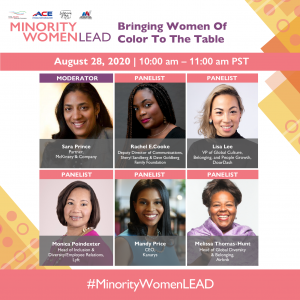 Inspired to keep facilitating positive change in your community? Check out the amazing stories of leading women of color that we've collected throughout the month as part of our Minority Women Lead virtual conversation series!
Inspired to keep facilitating positive change in your community? Check out the amazing stories of leading women of color that we've collected throughout the month as part of our Minority Women Lead virtual conversation series!
Then, don't forget to register for our series finale, Bringing Women of Color to the Table, live this Friday, August 28 at 10:00 AM PST!
#MinorityWomenLEAD | Let’s Talk About Breaking Barriers in 2020
When discussing the challenges women face in the workplace, some acknowledge that many barriers are placed to block their upward mobility into leadership positions. Women— and especially women of color— have to push themselves to “climb the ladder” to the top, but even when they are able to climb that ladder, there is a “ceiling” blocking their path.
There are a variety of “ceilings” that women of color confront:
-
The “Glass ceiling” refers to the invisible barrier and obstacles that keep minorities from rising beyond a certain level of advancement, and from rising to high positions of power.
-
The “Bamboo ceiling” refers to the barriers and obstacles-Asian Americans specifically face in the workplace, including stereotypes and racism, that block their advancement.
-
The “Canvas ceiling” refers to the unseen challenges that refugees face in workforce integration. This is particularly difficult due to the complex factors that stand in their way including but not limited to: immigration regulations, language, qualifications, accreditation, education, and socio-political climates.
Ceilings are the commonly known barriers to advancement opportunities. However, one of the biggest obstacles women face is actually the “broken rung” of the ladder: the manager position. This is especially important, because managers are the first step in upward mobility, and the people selected to receive higher promotion opportunities.
According to McKinsey’s “Women in the Workplace” report in 2019:
-
While women in C-Suite leadership positions had increased by 24% since 2015, less than 5% of women in the general workplace were women of color.
-
About 1 in 5 C-suite executives is a woman—and only 1 in 25 C-suite executives is a woman of color.
-
For every 100 men promoted and hired to manager, only 72 women are promoted and hired. Men end up holding 62% of manager-level positions, while women hold just 38%.
When women are not placed in manager positions, they are often stuck at entry-level positions, hence the “broken rung” in the ladder of their upward mobility. Not only does this exclude them from conversations regarding wage disparity, but it can create an unconscious bias— keeping women at the bottom of the ladder and men at the top of the pyramid. Just as how it is important to have diverse representation in film and television, so too must the corporate workplace reflect equality and inclusion.
We have invited women leaders to speak on their own stories about "Climbing the Ladder and Lessons Learned" as part of our Minority Women Lead virtual conversation series this Friday, August 21. They will be sharing their experiences as leaders, the barriers they faced, and their advice for future generations.
Register today and read more about our panelists below:
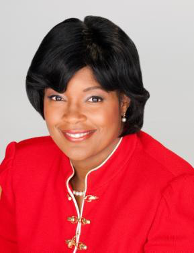 Terrez Marriott Thompson, Vice President of Global Supplier Diversity for The Coca-Cola Company
Terrez Marriott Thompson, Vice President of Global Supplier Diversity for The Coca-Cola Company
“I have been allowed to focus us on truly integrating supplier diversity in the business and being true partners to business and procurement leaders.”
Terrez Marriott Thompson has been a part of The Coca-Cola Company for over 30 years and is equipped with experience in various departments including Operations, Innovation, Public Affairs, and Finance. Her promotion as Head of Supplier Diversity was made in April 2012. Although she was not a Supplier Diversity expert at the time of her appointment, her wealth of business experience has been a key factor to how she leads her department to success. One of her priorities in the company is enhancing Coca-Cola’s Supplier Mentoring Program, which will sustain the company’s supplier-diversity program over time.
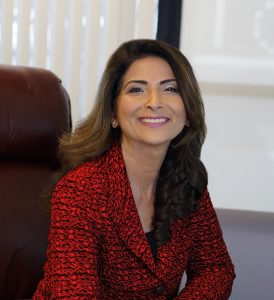 Sue Bhatia, CEO & Founder of Rose International
Sue Bhatia, CEO & Founder of Rose International
Sue Bhatia founded Rose International, a company specializing in workforce and technology solutions in 1993. From an unfinished basement with one desk and one phone, Rose International has grown into one of the largest women-owned businesses in St. Louis, MO, and has been awarded the National Minority Supplier Development Council's (NMSDC) Regional Supplier of the Year Award. The company ranked #24 on the Staffing Industry Analysts (SIA) list of Largest IT Staffing Firms in the US in 2019.
Bhatia herself is a passionate advocate for women and people of color, and has actively spoken about adaptability and female empowerment at conferences all over the world, and as a podcast guest of Women Worldwide and The Small Business Radio Show. She was inducted into the SIA Staffing 100 Hall of Fame in 2017, the first female minority business owner to serve on the NMSDC’s board of directors, and won the 2019 Trailblazer Award from the WBE Hall of Fame.
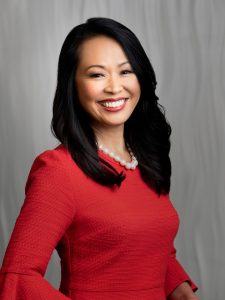 Lisa Chang, Senior Vice President & Chief People Officer of The Coca Cola Company
Lisa Chang, Senior Vice President & Chief People Officer of The Coca Cola Company
“Behind the world’s most iconic brand are the world’s most passionate people.”
Before Lisa Chang joined Coca-Cola in 2019, she served as Senior Vice President and Chief Human Resources Officer for AMB Group LLC in Atlanta. She is an industry veteran backed by over 26 years of experience and has brought that into her role overseeing Coca-Cola’s global human resources operations. She has worked with other companies such as Turner Broadcasting, Equifax, The Weather Channel and more, in high leadership positions with complex responsibilities.
 Linda Shim, Executive Director of External Affairs at Comcast
Linda Shim, Executive Director of External Affairs at Comcast
“Follow your heart and don’t give up. I’ve loved every job I had working for the House of Representatives. Each role gave me an opportunity to address problems and contribute in different ways.”
Linda Shim is well known for her previous work as Chief of Staff to Congresswoman Judy Chu (CA-27), who delivered Special Remarks at our Minority Women Lead Kick Off [link to recording here]. She currently serves as an Executive Director at Comcast, hoping to bridge the public and private sectors together and create effective policies for both realms. Her current role in the company is to act as liaison between Comcast and external stakeholders, including AAPI policy and political organizations. Her extensive experience in government policies brings a much-needed game-changing perspective to affect change in the large company.
 Tina Wei Smith, Executive Director of White House Initiative on Asian Americans and Pacific Islanders (WHIAAPI)
Tina Wei Smith, Executive Director of White House Initiative on Asian Americans and Pacific Islanders (WHIAAPI)
Tina Wei Smith was appointed as the 8th Executive Director of the WHIAAPI on December 9, 2019. One of her extensive duties will be advising federal agency leadership on implementing and coordinating with federal programs relating to AAPIs across the federal government. The WHIAAPI was created to broaden AAPI access to economic resources and opportunities, empowering them to improve their lives and their communities. Smith has previously worked at the The Heritage Foundation in the Office of Distinguished Fellow, the U.S. Department of Labor, and the U.S. House of Representatives. She also served as the first Director of Global Engagement Office at Asbury University, creating new international education initiatives and curriculum to help students prepare for the expanding global economy.
#MinorityWomenLEAD | Let’s Talk About Leading Change in 2020

According to an annual report based on U.S. Census Bureau data, over the past five years:
-
The number of women-owned businesses increased 21%, while all businesses increased only 9%
-
Total employment by women-owned businesses rose 8%, while for all businesses the increase was far lower at 1.8%
-
Total revenue for women-owned businesses also rose slightly above all businesses: 21% compared to 20% respectively
The growth of women entrepreneurship has been steadily increasing towards better conditions and higher wages, but many have seen a halt in progress due to the emergence of the global COVID-19 pandemic. Many small businesses are on the verge of shutting their doors permanently while other cling to their networks for support and survival.
In our current climate of crisis and upheaval, women of color in leadership roles have stepped up and brought forth change where they can, showing strength and resilience to meet these new challenges head on. As leaders, they are representatives of their cause, and serve as inspiration and strength in the eyes of the next generation.
In fact, more detailed studies over the years have shown the success rate or resilient women leadership. It has been shown that:
-
Women of color account for 89% (1,625) of the new businesses opened every day over the past year. (source)
-
Women-owned businesses continue to fuel the economy and now represent 42% of all businesses — nearly 13 million — employing 9.4 million workers and generating revenue of $1.9 trillion. (source)
-
At the end of 2018, companies with strong female leadership generated a return on equity of 10.1% per year versus 7.4% for those without. (source)
-
By January 2020, women held 20 percent or more of the board seats in over half of the 2014 – 2019 IPO companies. (source)
On August 13, 2020 these resilient women leaders will further discuss their journeys, philosophies, and how they've lead through change at our panel: Minority Women Leading Through Change.
Register today to learn more about them and their work below:
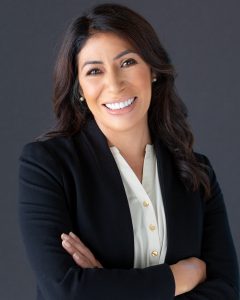 Moderator: Emiliana Guereca
Moderator: Emiliana Guereca
President of Women's March Foundation
Emiliana is the President of Women’s March Foundation, a non-profit organization comprised of volunteers determined to create positive change for women’s rights and fight against inequality and discrimination. She initially founded the organization in Los Angeles (WMLA) when she first became interested in activism. She used her extensive event planning experience to organize activities and create a new activist community in that area. Her passion and enthusiasm for the organization and their underlying mission, eventually lead her to create Women’s March California and its related chapters in Northern, Central, and Southern California.
Panelists
 Elizabeth Barajas-Román
Elizabeth Barajas-Román
President & CEO of Women’s Funding Network
Elizabeth Barajas-Román is the President and CEO of the Women’s Funding Network (WFN). The core mission of the WFN is to democratize philanthropy through funds created by and for women in order to dismantle gender inequity across the globe. For more than 20 years, Elizabeth has used her leadership position to advocate for women’s rights in the areas of health, finance, gender, and immigration. She has drawn upon her vast leadership experiences to further improve the goals of the WFN. By supporting women foundations through funding, the WFN is creating opportunities for achievable economic stability and a much-needed community network of support for its members.
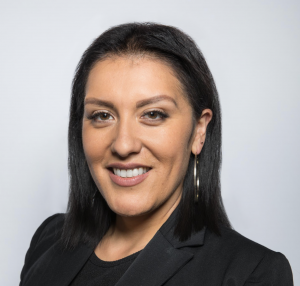 Maritza Davis
Maritza Davis
Vice President of Experience and Social Responsibility at the Sacramento Kings & Co-Founder of Unseen Heroes
Maritza Davis is the Vice President of Experience and Social Responsibility at the Sacramento Kings as well as the Co-Founder of Unseen Heroes, an award-winning Event Marketing and Production Agency. When protests in Sacramento called for action in light of the death of Stephon Clark, Maritza was hired on to the Sacramento Kings team to ensure the organization responded responsibly and in tight connection with the community it represented. Her strong foundation in creating, developing, and executing unique concepts have astonished, transformed, and excited the community she works with. Her leadership has helped her build strong corporate, political and non-profit relationships.
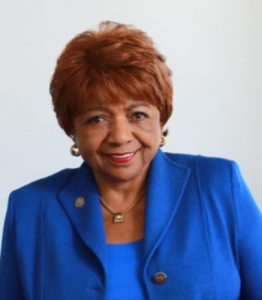 Dr. Alice Huffman
Dr. Alice Huffman
President of NAACP California and Hawaii
Dr. Alice Huffman was elected President of the California Hawaii NAACP in 1999 and has won 8 consecutive elections since then. She currently specializes in organizational development and leadership training, but has served her community over the years in various positions, acting as a leader, manager, consultant, and a bridge between government policy makers and the people she represents. Dr. Huffman is the recipient of many national and state distinguished awards. Her most recent award is the prestigious CA Legislative Black Caucus Heritage and Legends Award.
 Dr. Natasha Lee
Dr. Natasha Lee
Past President, California Dental Association & Member, Governor's Task Force on Business and Jobs Recovery
Dr. Natasha Lee was a Past President of the California Dental Association, and a member of the CDA Foundation Board of Directors. She has been an advocate for patients and dental health professionals all throughout her career, and continues to be a strong voice in the community. She has held various leadership roles with the American Dental Association and the San Francisco Dental Society. Natasha is currently serving on CDA’s COVID-19 Clinical Care Work Group and has been appointed to Governor Gavin Newsom’s Task Force on Business and Jobs Recovery.
Stats Used:
#MinorityWomenLEAD | 11 Ways Mentorship Can Accelerate Growth for Women of Color
As a woman of color, entering a majority-dominated field with a small network and limited knowledge of the field can be intimidating. Women of color are systemically underrepresented in top leadership positions. Implementing mentorship is one way to combat this problem and increase diversity throughout the workplace. Though women of color face barriers accessing mentor networks, mentorship is beneficial and essential for professional development.
1. Mentorship can lead to sponsorship.
Sponsorship involves advocating for a person’s skills and potential for opportunities to a higher manager. Though mentorship does not guarantee this, mentees “developing at a faster pace... can lead to sponsors identifying them as a high-potential person.” This way, women of color gain a greater network that they did not originally have in their male-dominated fields. (source)
2. “Career mentoring” can improve self-efficacy.
This specific type of mentoring in college, graduate schools, and professional environments provides “greater visibility into otherwise obscure fields, enhanced confidence about themselves and their ability to succeed in industries traditionally dominated by the ‘majorities.’” (source)
 3. Mentorship aids in socialization, career development, and career navigation.
3. Mentorship aids in socialization, career development, and career navigation.
As a mentor, you can unlock this potential and encourage their talent, teaching them to conduct themselves and their work in a professional setting. Be a confidant, a safety net, and an inspiration to the next generation of women leaders. (source)
4. Mentors provide insight about their jobs and suggest strategies for the mentee’s aspirations.
Young adults can gain a better understanding of different jobs in their respective industries and narrow their scope of choice. Hearing mentors’ experiences and advice can influence their desire to pursue a specific career. (source)
5. Students gain academic advice and learn more about careers and postgraduate opportunities.
Students learn about not only the mentor’s job, but also alternative career paths and the steps in college required to get there. After all, entering the work field immediately after college isn’t always the reality and it’s okay, or even better, to let them know that.
6. Mentorship effectively recruits and retains women of color in STEM fields.
Men dominate the STEM field and women of color are increasingly underrepresented. Mentoring introduces women of color to the STEM field, fostering their talent and inspiring them to continue pursuing such careers. Mentors help women of color recognize their rightful seats at the table. (source)
 7. Finding a mentor requires overcoming fear and stepping out of your comfort zone.
7. Finding a mentor requires overcoming fear and stepping out of your comfort zone.
Women of color must let go of the fear of being uncomfortable and unqualified to maximize their opportunities. Be confident in your abilities and find a realistic fit by discussing your goals and trajectory. Look around, not up. Often times, women of color are scarce in top leadership positions, so being open to male mentors can still provide all the benefits. After identifying a good mentor, ask the person to “provide you with ‘some sound business advice,’” so they’ll be more inclined to help. (source)
8. Mentoring women of color tackles implicit bias.
Employers doing the intentional work to eliminate their self-learned racial discrimination can directly promote diversity and inclusion more effectively than diversity training. There is always room for improvement – consider mentoring to foster a healthy work culture and an open learning environment at your workplace. Use your diversity as a strength and have these uncomfortable but necessary conversations. (source)
9. Mentoring promotes continuous opportunity for emerging women leaders and improves work environments with each generation.
Each woman’s experience is different, but women of color face similar themes of challenges. Mentors introduce specific challenges and teach them how to better navigate through such obstacles. Passing knowledge down to the next generation “assists attracting, retaining, and supporting women in work environments in which they are underrepresented.” When thinking about the women who helped you reach your current success, make this same impact to younger women of color who were once in your shoes. (source)
10. Mentors can improve their own listening and empathy skills.
Women of color seek mentors with whom they can discuss unique problems concerning diversity. Mentors in cross-cultural mentor relationships learn that listening is “’key to understanding their experience and [the mentor’s] ability to help them think through... the challenges they’re facing.’” No matter the relationship to ethnicity among mentor and mentee, we can all learn something from each other’s experience. (source)
11. Women of color improve their supervisory skills and gain a renewed commitment to their field.
Women in these positions have the opportunity to gain stronger leadership skills and refresh their passion for their work. If you find yourself feeling stagnant in the day-to-day routine, becoming a mentor can remind you why you began this journey. (source)
Mentoring is reciprocal – both parties benefit and aid each other in professional development. Though there are many benefits of passing down knowledge to the next generation of leaders, more work must be done to increase access to mentorship for women of color. In current times of social justice, it is especially important that we empower and uplift them.
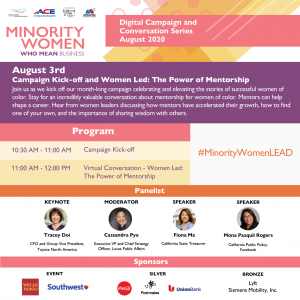 At our virtual conversation “Women Led: The Power of Mentorship” on August 3, CA State Treasurer Fiona Ma and Mona Pasquil Rogers, California Public Policy, Facebook will share how mentorship aided their upward mobility, with moderation by Cassandra Pye, Executive VP and Chief Strategy Officer, Lucas Public Affairs.
At our virtual conversation “Women Led: The Power of Mentorship” on August 3, CA State Treasurer Fiona Ma and Mona Pasquil Rogers, California Public Policy, Facebook will share how mentorship aided their upward mobility, with moderation by Cassandra Pye, Executive VP and Chief Strategy Officer, Lucas Public Affairs.
Register here to learn more!

